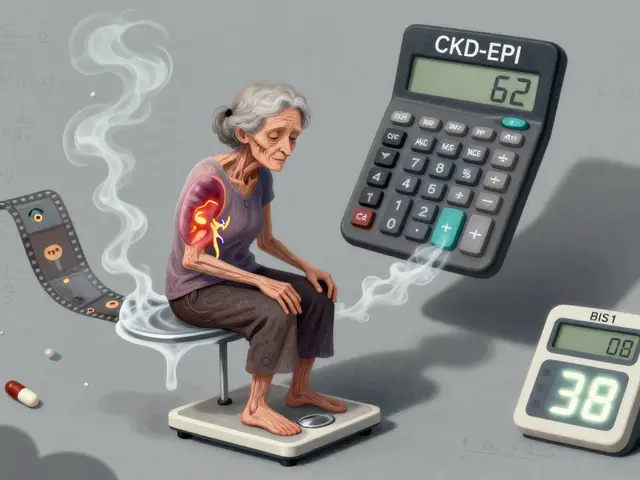Khella: Uses, Benefits, Dosage, and Safety
Khella (Ammi visnaga) is an herb used traditionally for chest spasms, asthma, and kidney stones. People take it as tea, capsule, or extract. On this tag page you’ll find practical tips, safety notes, and links to related articles on medications and alternatives.
What does Khella do? It contains khellin and visnagin, compounds that can relax smooth muscle. That effect can ease bronchial spasms and help some people breathe better during mild attacks. Some research also looks at its role in preventing kidney stones by changing urine chemistry. Still, quality studies are limited and results vary.
How to use it. Traditional use is a tea made from dried fruit: steep one teaspoon in hot water for 10 minutes, up to two times daily. Modern supplements come in capsules standardized for khellin; common doses range from 100 to 300 mg daily depending on the product. Start low and watch for effects. If you plan to replace a prescribed inhaler or medicine, talk to your doctor first.
Safety and interactions
Khella can cause stomach upset, skin sensitivity to sunlight, and dizziness in some people. It may interact with blood pressure drugs and certain heart medicines because it affects smooth muscle and blood vessels. Avoid combining Khella with nitrates, alpha-blockers, or other vasodilators unless a clinician clears it. Pregnant or breastfeeding people should avoid it due to limited safety data.
If you take prescription drugs for asthma, heart disease, or high blood pressure, check with your healthcare provider before trying Khella. Ask about possible interactions and the right dose. Keep a record of any new symptoms for at least two weeks after starting the herb.
Choosing a product and quality tips
Look for supplements from reputable brands that list the Latin name Ammi visnaga and show standardization for khellin. Avoid products that make bold claims like “cures asthma.” Read labels for fillers and check third-party testing badges when available. If buying dried fruit for tea, pick suppliers that test for heavy metals and pesticides.
Want to try a natural approach but stay safe? Start with a low dose, use one product at a time, and track changes in breathing, digestion, and skin. Keep emergency asthma meds handy and keep your clinician in the loop. This tag collects our posts about herbs, drug alternatives, and safe ways to buy medications online—browse the linked articles below for detailed guides and drug-specific tips.
Monitoring and when to stop: If you start Khella and notice worsening shortness of breath, chest pain, fainting, or severe stomach pain, stop immediately and seek care. Mild side effects like nausea or mild dizziness may pass in a few days, but if they persist for more than a week, contact your provider. Keep a medication list and note the brand, dose, and start date. That helps your clinician spot problems fast. If you have liver or kidney disease, get lab checks before and during use. Specialists sometimes recommend baseline liver tests for herbs that affect metabolism. Note.
Transform Your Wellness Routine with Khella: The All-Natural Dietary Supplement You Can't Ignore
Discover the transformative benefits of Khella, an all-natural dietary supplement that promises to enhance your wellness routine. This article explores its historical uses, modern scientific backing, and practical tips on integrating it into your daily regimen. Learn how Khella can support heart health, improve respiratory function, and boost overall well-being. With rising interest in natural supplements, Khella stands out as a potent yet gentle option for those looking to enrich their health journey. Say goodbye to generic health trends and embrace Khella's unique advantages.






